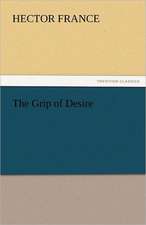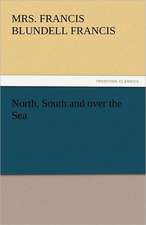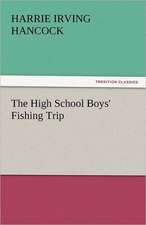Fugitive Pieces: Winner of the Orange Prize for Fiction
Autor Anne Michaelsen Limba Engleză Paperback – mar 2009
| Toate formatele și edițiile | Preț | Express |
|---|---|---|
| Paperback (2) | 48.56 lei 3-5 săpt. | +24.47 lei 10-14 zile |
| Bloomsbury Publishing – mar 2009 | 48.56 lei 3-5 săpt. | +24.47 lei 10-14 zile |
| Vintage Books USA – 30 apr 1998 | 111.29 lei 3-5 săpt. |
Preț: 48.56 lei
Preț vechi: 63.60 lei
-24% Nou
Puncte Express: 73
Preț estimativ în valută:
9.29€ • 9.73$ • 7.69£
9.29€ • 9.73$ • 7.69£
Carte disponibilă
Livrare economică 15-29 martie
Livrare express 04-08 martie pentru 34.46 lei
Preluare comenzi: 021 569.72.76
Specificații
ISBN-13: 9780747599258
ISBN-10: 0747599254
Pagini: 320
Dimensiuni: 129 x 198 x 20 mm
Greutate: 0.23 kg
Ediția:New edition.
Editura: Bloomsbury Publishing
Colecția Bloomsbury Paperbacks
Locul publicării:London, United Kingdom
ISBN-10: 0747599254
Pagini: 320
Dimensiuni: 129 x 198 x 20 mm
Greutate: 0.23 kg
Ediția:New edition.
Editura: Bloomsbury Publishing
Colecția Bloomsbury Paperbacks
Locul publicării:London, United Kingdom
Caracteristici
Winner of the Orange Prize for Fiction and winner of the Guardian Fiction Award. Of all the Orange Prize winners since it began, this is the 4th bestselling book.
Notă biografică
Anne Michaels is the author of three collections of poetry: The Weight of Oranges, which won the Commonwealth Prize for the Americas; Miner's Pond, which won the Canadian Authors Association Award; and Skin Divers. Her first novel, Fugitive Pieces, was published by Bloomsbury in 1997 to worldwide acclaim. It won the Orange Prize and the Guardian First Book Award among others, and was made into a major film. She is also the author of another novel, The Winter Vault, Correspondences: A Poem and Portraits, a collaboration with the acclaimed artist and writer Bernice Eisenstein, and a book for children, The Adventures of Miss Petitfour and Her Cats. Anne Michaels' work has been translated into over forty languages. She lives in Toronto, and in October 2015 was named the fifth Toronto Poet Laureate.
Recenzii
Monumental ... Fugitive Pieces is the most important book I have read for forty years
This is a novel to lose yourself in; let the language pour over you, depositing its richness like waves lapping sand onto a beach. Michaels is a novelist of unusual and compelling power
Essential reading, both for its exceptional literary craft and for its exemplary and inspiring humanity
All except a handful of contemporary novels are dwarfed by its reach, its compassion, its wisdom ... A book to read many times
Extraordinarily magical
Lovely ... Musical and magical ... Put this book alongside The English Patient
This extraordinarily beautiful novel is a world. A book miraculously created because it mends the hopeless and dances with loss. Trust and read it
An utterly mesmerizing novel told from the core of a poet's soul focusing upon our very prosaic world. It does what all great novels do: illuminate through the lights of language and intelligence the heart of a hitherto hidden human landscape
Anne Michaels has created a world of stunning, heartbreaking clarity where even the unspeakable is captured in the light-web of her words. She is a superb poet, a breath-stopping storyteller
Searing the mind with stunning images while seducing with radiant prose, this brilliant first novel is a story of damaged lives and the indestructibility of the human spirit. The novel will make readers yearn to share it with others, to read sentences and entire passages out loud, to debate its message, to acknowledge its wisdom
This is a novel to lose yourself in; let the language pour over you, depositing its richness like waves lapping sand onto a beach. Michaels is a novelist of unusual and compelling power
Essential reading, both for its exceptional literary craft and for its exemplary and inspiring humanity
All except a handful of contemporary novels are dwarfed by its reach, its compassion, its wisdom ... A book to read many times
Extraordinarily magical
Lovely ... Musical and magical ... Put this book alongside The English Patient
This extraordinarily beautiful novel is a world. A book miraculously created because it mends the hopeless and dances with loss. Trust and read it
An utterly mesmerizing novel told from the core of a poet's soul focusing upon our very prosaic world. It does what all great novels do: illuminate through the lights of language and intelligence the heart of a hitherto hidden human landscape
Anne Michaels has created a world of stunning, heartbreaking clarity where even the unspeakable is captured in the light-web of her words. She is a superb poet, a breath-stopping storyteller
Searing the mind with stunning images while seducing with radiant prose, this brilliant first novel is a story of damaged lives and the indestructibility of the human spirit. The novel will make readers yearn to share it with others, to read sentences and entire passages out loud, to debate its message, to acknowledge its wisdom
Descriere
The prize-winning, bestselling debut novel from Anne Michaels, reissued with a striking new cover
Extras
My sister had long outgrown the hiding place. Bella was fifteen and even I admitted she was beautiful, with heavy brows and magnificent hair like black syrup, thick and luxurious, a muscle down her back. "A work of art," our mother said, brushing it for her while Bella sat in a chair. I was still small enough to vanish behind the wallpaper in the cupboard, cramming my head sideways between choking plaster and beams, eyelashes scraping.
Since those minutes inside the wall, I've imagined the dean lose every sense except hearing. The burst door. Wood ripped from hinges, cracking like ice under the shouts. Noises never heard before, torn from my father's mouth. Then silence. My mother had been sewing a button on my shirt. She kept her buttons in a chipped saucer. I heard the rim of the saucer in circles on the floor. I heard the spray of buttons, little white teeth.
Blackness filled me, spread from the back of my head into my eyes as if my brain has been punctured. Spread from stomach to legs. I gulped and gulped, swallowing it whole. The wall filled with smoke. I struggled out and stared while the air caught fire.
I wanted to go to my parents, to touch them. But I couldn't, unless I stepped on their blood.
The soul leaves the body instantly, as if it can hardly wait to be free: my mother's face was not her own. My father was twisted with falling. Two shapes in the flesh-heap, his hands.
I ran and fell, ran and fell. Then the river: so cold it felt sharp.
The river was the same blackness that was inside me; only the thin membrane of my skin kept me floating.
From the other bank, I watched darkness turn to purple-orange light above the town; the color of flesh transforming to spirit. They flew up. The dead passed above me, weird haloes and arcs smothering the stars. The trees bent under their weight. I'd never been alone in the night forest, the wild bare branches were frozen snakes. The ground tilted and I didn't hold on. I strained to join them, to rise with them, to peel from the ground like paper ungluing at its edges. I know why we bury our dead and mark the place with stone, with the heaviest, most permanent thing we can think of: because the dead are everywhere but the ground. I stayed where I was. Clammy with cold, stuck to the ground. I begged: If I can't rise, then let me sink, sink into the forest floor like a seal into wax.
Then -- as if she'd pushed the hair from my forehead, as if I'd heard her voice--I knew suddenly my mother was inside me. Moving along sinews, under my skin the way she used to move through the house at night, putting things away, putting things in order. She was stopping to say goodbye and was caught, in such pain, wanting to rise, wanting to stay. It was my responsibility to release her, a sin to keep her from ascending. I tore at my clothes, my hair. She was gone. My own fast breath around my head.
I ran from the sound of the river into the woods, dark as the inside of a box. I ran until the first light wrung the last grayness out of the stars, dripping dirty light between the trees. I knew what to do. I took a stick and dug. I planted myself like a turnip and hid my face with leaves.
My head between the branches, bristling points like my father's beard. I was safely buried, my wet clothes cold as armor. Panting like a dog. My arms tight up against my chest, my neck stretched back, tears crawling like insects into my ears. I had no choice but to look straight up. The dawn sky was milky with new spirits. Soon I couldn't avoid the absurdity of daylight even by closing my eyes. It poked down, pinned me like the broken branches, like my father's beard.
Then I felt the worst shame of my life: I was pierced with hunger. And suddenly I realized, my throat aching without sounds -- Bella.
Since those minutes inside the wall, I've imagined the dean lose every sense except hearing. The burst door. Wood ripped from hinges, cracking like ice under the shouts. Noises never heard before, torn from my father's mouth. Then silence. My mother had been sewing a button on my shirt. She kept her buttons in a chipped saucer. I heard the rim of the saucer in circles on the floor. I heard the spray of buttons, little white teeth.
Blackness filled me, spread from the back of my head into my eyes as if my brain has been punctured. Spread from stomach to legs. I gulped and gulped, swallowing it whole. The wall filled with smoke. I struggled out and stared while the air caught fire.
I wanted to go to my parents, to touch them. But I couldn't, unless I stepped on their blood.
The soul leaves the body instantly, as if it can hardly wait to be free: my mother's face was not her own. My father was twisted with falling. Two shapes in the flesh-heap, his hands.
I ran and fell, ran and fell. Then the river: so cold it felt sharp.
The river was the same blackness that was inside me; only the thin membrane of my skin kept me floating.
From the other bank, I watched darkness turn to purple-orange light above the town; the color of flesh transforming to spirit. They flew up. The dead passed above me, weird haloes and arcs smothering the stars. The trees bent under their weight. I'd never been alone in the night forest, the wild bare branches were frozen snakes. The ground tilted and I didn't hold on. I strained to join them, to rise with them, to peel from the ground like paper ungluing at its edges. I know why we bury our dead and mark the place with stone, with the heaviest, most permanent thing we can think of: because the dead are everywhere but the ground. I stayed where I was. Clammy with cold, stuck to the ground. I begged: If I can't rise, then let me sink, sink into the forest floor like a seal into wax.
Then -- as if she'd pushed the hair from my forehead, as if I'd heard her voice--I knew suddenly my mother was inside me. Moving along sinews, under my skin the way she used to move through the house at night, putting things away, putting things in order. She was stopping to say goodbye and was caught, in such pain, wanting to rise, wanting to stay. It was my responsibility to release her, a sin to keep her from ascending. I tore at my clothes, my hair. She was gone. My own fast breath around my head.
I ran from the sound of the river into the woods, dark as the inside of a box. I ran until the first light wrung the last grayness out of the stars, dripping dirty light between the trees. I knew what to do. I took a stick and dug. I planted myself like a turnip and hid my face with leaves.
My head between the branches, bristling points like my father's beard. I was safely buried, my wet clothes cold as armor. Panting like a dog. My arms tight up against my chest, my neck stretched back, tears crawling like insects into my ears. I had no choice but to look straight up. The dawn sky was milky with new spirits. Soon I couldn't avoid the absurdity of daylight even by closing my eyes. It poked down, pinned me like the broken branches, like my father's beard.
Then I felt the worst shame of my life: I was pierced with hunger. And suddenly I realized, my throat aching without sounds -- Bella.
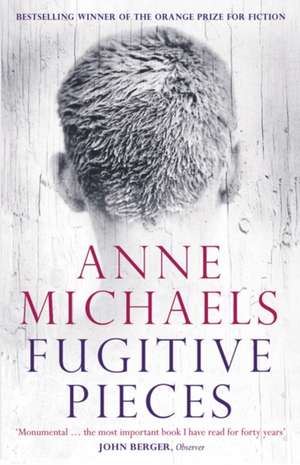
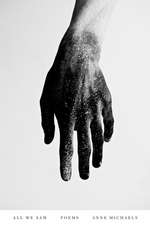

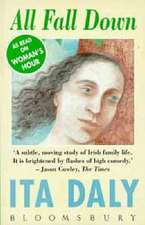
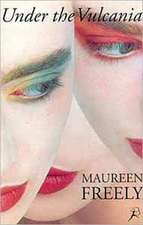
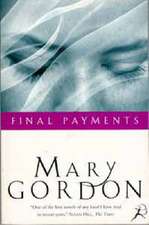
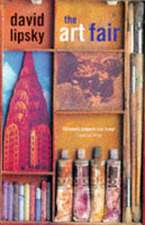

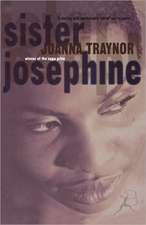
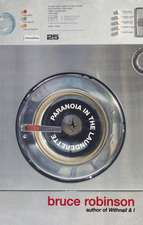


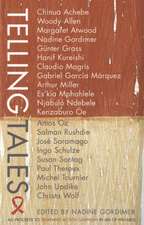

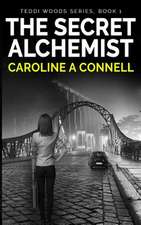
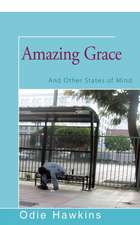
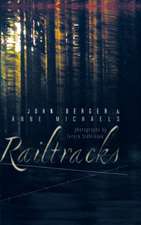
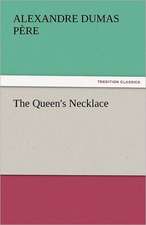
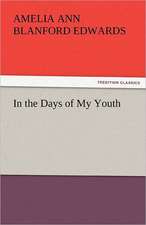
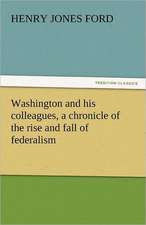
![The True George Washington [10th Ed.]](https://i3.books-express.ro/bt/9783842446588/the-true-george-washington-10th-ed.jpg)
